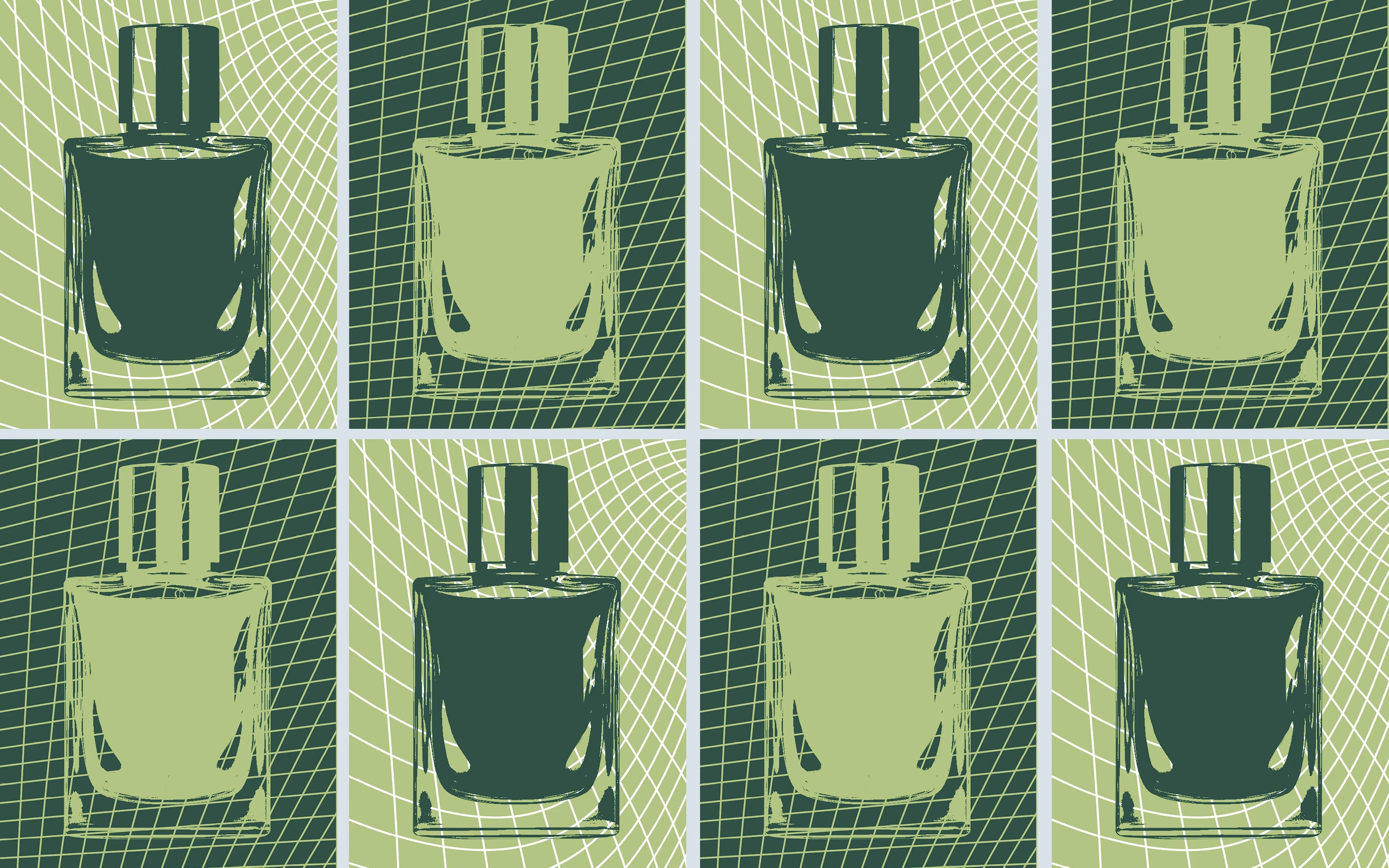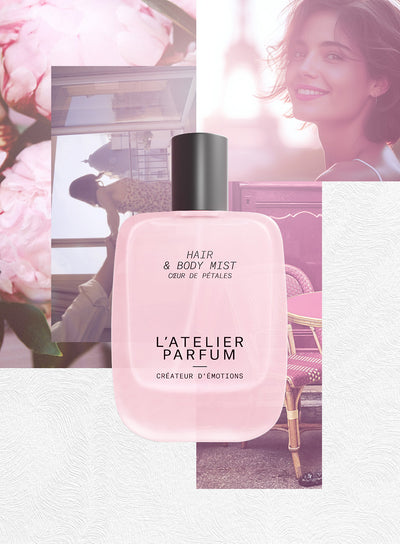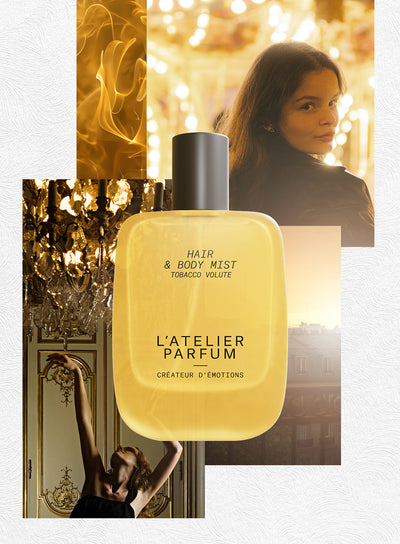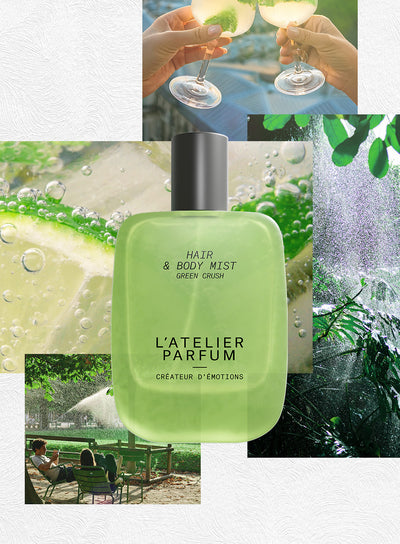Scent & Sense: How Artificial Intelligence is Reshaping the Future of Perfumery

Once an art form cloaked in mystery and reliant solely on the sensibilities of master perfumers, the world of fragrance is undergoing a dramatic transformation. Artificial Intelligence (AI), once viewed as a tool for techies, is now diffusing into the olfactory arts. From brainwave mapping to algorithmic creativity, AI is not replacing the perfumer — it's becoming their most futuristic partner. This partnership is shifting how we formulate, experience, and personalize scent. But with every innovation comes a set of challenges: ethical, artistic, and sensory. Let’s dive deep into this fragrant future.
The New Nose: AI Meets the Art of Perfumery
The idea of AI designing fragrances may sound futuristic, but it’s already happening. Companies like Givaudan and Symrise, giants in the fragrance industry, are leading the charge.
Both platforms are redefining the very meaning of a perfume “brief.”
Emotive Algorithms: Neuroscience and the Rise of Neuroscents
Perhaps the most revolutionary development is AI’s partnership with neuroscience. A key area of innovation involves mapping emotional responses to scents. As explored in The Guardian, researchers like Hugo Ferreira use EEG headsets to track brain activity in real time as participants smell different fragrances. These readings help build datasets linking molecular structures with feelings — calmness, energy, seduction, nostalgia.
With enough data, AI can reverse-engineer the process: you tell it the mood you want a scent to evoke, and it suggests the appropriate molecules. It’s scent design informed not just by memory or trend but by neurobiology.
This technology was tested in retail environments: L’Oréal, for example, ran a campaign with EEG headsets in stores, offering customers scent recommendations based on their brain’s reactions. The success rate? Around 95% of participants reported liking the AI-selected perfumes better than their original picks.
AI and Personalization: The Dream of a Bespoke Bottle
Personalized fragrance has long been a luxury niche — think private blending sessions with master perfumers. AI is now democratizing that experience.
Philyra and other AI systems can analyze customer data (location, mood, lifestyle, previous purchases) and develop a custom formula. In the future, AI may combine data from your wearable devices (like stress levels or sleep patterns) with olfactory preferences to create fragrances tailored in real time — a scent for Monday meetings, another for Saturday brunch.
Jean-Christophe Hérault, a senior perfumer at IFF, has welcomed the assistance of AI while warning against reducing fragrance to mere data. “Fragrance is more than chemistry and preference — it’s poetry. It’s emotion. AI may help the hand, but it cannot replace the soul,” he notes in an interview with ByNez.
The Innovation Paradox: Efficiency vs. Emotion
With AI making fragrance development faster and cheaper, some perfumers worry that the soul of perfumery — the nuance, the imperfection, the surprise — may be at risk. There's also a broader concern around homogenization: if algorithms draw on existing datasets, they might favor already-popular accords, risking a kind of olfactory déjà-vu across brands.
In an article for Vogue Business, Emmanuelle Moeglin of the Experimental Perfume Club argues that AI must not override the spontaneous creativity and intuition of the human perfumer. “If everything smells like it came from a spreadsheet, we lose the magic.”
Sustainability and AI: Smarter, Cleaner, Greener Scents
AI isn’t just about personalization and innovation — it’s also key to solving sustainability challenges. Traditional ingredients like agarwood or musk raise environmental and ethical concerns. AI models help develop synthetic alternatives that are more eco-friendly, like Akigalawood, a biodegradable molecule used by Tom Ford Beauty.
By analyzing the entire life cycle of raw materials, AI can propose low-impact ingredients and optimize usage, reducing waste. This is increasingly vital in an industry under pressure to meet carbon and transparency goals.
AI in China: Luxury Meets Digital Culture
According to Jing Daily, China’s luxury consumers — digital-first and trend-sensitive — are driving demand for AI-generated perfumes. Brands experimenting with AI-based scent tools, from pop-ups to WeChat mini-programs, are finding that younger buyers are more open to the idea of technology-enhanced personalization. The fusion of AI and fragrance plays into China’s larger fascination with functional beauty and wellness, where scent becomes part of a lifestyle algorithm.
Conclusion: A Future Full of Fragrance and Code
We are witnessing a new age of perfumery, one where the intuitive wisdom of the human nose is enriched — not replaced — by the pattern-detecting brilliance of AI. The question is no longer whether AI belongs in perfumery, but how to harness it without losing the soul of the craft.
AI brings unmatched speed, precision, personalization, and sustainability to the table. But fragrance is more than a science — it’s a story. As long as perfumers continue to write that story, AI can be a powerful pen.
Further articles :
How AI and brain science are helping perfumiers create fragrances – The Guardian
Perfume with perfumers: Is AI a threat to the human nose? – Vogue Business
Carto, the future of fragrance formulation – Givaudan
Philyra, AI-powered fragrance design – Symrise
Artificial Intelligence and Jean-Christophe Hérault (IFF) – ByNez
AI-powered perfume in China – Jing Daily
Machine Learning for Scent: Learning Generalizable Perceptual Representations of Small Molecules
The New Nose: AI Meets the Art of Perfumery
The idea of AI designing fragrances may sound futuristic, but it’s already happening. Companies like Givaudan and Symrise, giants in the fragrance industry, are leading the charge.
- Givaudan’s CARTO is an AI-powered fragrance design system that visually maps scent families and suggests novel combinations. Designed to assist perfumers rather than replace them, CARTO allows faster iteration and more daring experimentation. It helps perfumers explore combinations they might never have considered, making the act of creation both efficient and surprising. "It’s like having a second nose that never gets tired," explains a perfumer from Givaudan.
- Symrise, in collaboration with IBM Research, developed Philyra, an AI that creates fragrance formulas based on market data, chemical compatibility, and olfactive parameters. It doesn’t simply mix ingredients; it understands customer preferences, regional trends, and regulatory frameworks. It was behind the creation of Egeo on You and Egeo on Me for Brazilian brand O Boticário — AI-designed, human-approved.
Both platforms are redefining the very meaning of a perfume “brief.”
Emotive Algorithms: Neuroscience and the Rise of Neuroscents
Perhaps the most revolutionary development is AI’s partnership with neuroscience. A key area of innovation involves mapping emotional responses to scents. As explored in The Guardian, researchers like Hugo Ferreira use EEG headsets to track brain activity in real time as participants smell different fragrances. These readings help build datasets linking molecular structures with feelings — calmness, energy, seduction, nostalgia.
With enough data, AI can reverse-engineer the process: you tell it the mood you want a scent to evoke, and it suggests the appropriate molecules. It’s scent design informed not just by memory or trend but by neurobiology.
This technology was tested in retail environments: L’Oréal, for example, ran a campaign with EEG headsets in stores, offering customers scent recommendations based on their brain’s reactions. The success rate? Around 95% of participants reported liking the AI-selected perfumes better than their original picks.
AI and Personalization: The Dream of a Bespoke Bottle
Personalized fragrance has long been a luxury niche — think private blending sessions with master perfumers. AI is now democratizing that experience.
Philyra and other AI systems can analyze customer data (location, mood, lifestyle, previous purchases) and develop a custom formula. In the future, AI may combine data from your wearable devices (like stress levels or sleep patterns) with olfactory preferences to create fragrances tailored in real time — a scent for Monday meetings, another for Saturday brunch.
Jean-Christophe Hérault, a senior perfumer at IFF, has welcomed the assistance of AI while warning against reducing fragrance to mere data. “Fragrance is more than chemistry and preference — it’s poetry. It’s emotion. AI may help the hand, but it cannot replace the soul,” he notes in an interview with ByNez.
The Innovation Paradox: Efficiency vs. Emotion
With AI making fragrance development faster and cheaper, some perfumers worry that the soul of perfumery — the nuance, the imperfection, the surprise — may be at risk. There's also a broader concern around homogenization: if algorithms draw on existing datasets, they might favor already-popular accords, risking a kind of olfactory déjà-vu across brands.
In an article for Vogue Business, Emmanuelle Moeglin of the Experimental Perfume Club argues that AI must not override the spontaneous creativity and intuition of the human perfumer. “If everything smells like it came from a spreadsheet, we lose the magic.”
Sustainability and AI: Smarter, Cleaner, Greener Scents
AI isn’t just about personalization and innovation — it’s also key to solving sustainability challenges. Traditional ingredients like agarwood or musk raise environmental and ethical concerns. AI models help develop synthetic alternatives that are more eco-friendly, like Akigalawood, a biodegradable molecule used by Tom Ford Beauty.
By analyzing the entire life cycle of raw materials, AI can propose low-impact ingredients and optimize usage, reducing waste. This is increasingly vital in an industry under pressure to meet carbon and transparency goals.
AI in China: Luxury Meets Digital Culture
According to Jing Daily, China’s luxury consumers — digital-first and trend-sensitive — are driving demand for AI-generated perfumes. Brands experimenting with AI-based scent tools, from pop-ups to WeChat mini-programs, are finding that younger buyers are more open to the idea of technology-enhanced personalization. The fusion of AI and fragrance plays into China’s larger fascination with functional beauty and wellness, where scent becomes part of a lifestyle algorithm.
Conclusion: A Future Full of Fragrance and Code
We are witnessing a new age of perfumery, one where the intuitive wisdom of the human nose is enriched — not replaced — by the pattern-detecting brilliance of AI. The question is no longer whether AI belongs in perfumery, but how to harness it without losing the soul of the craft.
AI brings unmatched speed, precision, personalization, and sustainability to the table. But fragrance is more than a science — it’s a story. As long as perfumers continue to write that story, AI can be a powerful pen.
Further articles :
How AI and brain science are helping perfumiers create fragrances – The Guardian
Perfume with perfumers: Is AI a threat to the human nose? – Vogue Business
Carto, the future of fragrance formulation – Givaudan
Philyra, AI-powered fragrance design – Symrise
Artificial Intelligence and Jean-Christophe Hérault (IFF) – ByNez
AI-powered perfume in China – Jing Daily
Machine Learning for Scent: Learning Generalizable Perceptual Representations of Small Molecules





